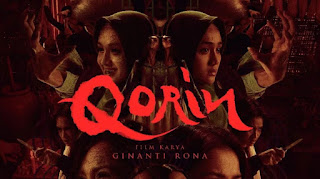GO Movie Review (2001) - Super Great Chicken Rage
Welcome to Sensei Sensibility! You are the hungry mind yearning to devour quality Asian cinema; I am the (questionably) knowledgeable Sensei, more than happy to satiate your cinematic appetite.
"What's in a name? That which we call a rose by any other name would smell as sweet." - Juliet Capulet
If cinema is the great zeitgeist reflector it claims to be, what does that say about turn-of-the-millennium Japan? While Isao Yukisada's adaptation of Kazuki Kaneshiro's novel GO isn't as dystopian as Battle Royale (2000), it's still as grim a portrayal of disillusioned, angry youths as Blue Spring (2001) or Bright Future (2003). Not exactly a bunch of happy campers, are they?
Sugihara, (played with seething perfection by Yosuke Kubozuka) however, has even more cause for displeasure. Part Korean, part Japanese, all "Zainichi", Sugihara is too Japanese for the Koreans (he wears jeans and listens to Mariah Carey! "Traitor!") and too Korean for the Japanese. He struggles daily to fit in with a society hell bent on keeping him firmly in his place. At the bottom.
School becomes an endless onslaught of fisticuffs, with our scrappy young misfit forced to engage (and in fairness to him: winning) in a series of fights that escalate (hilariously) One Punch Man style. His turbulent homelife sadly provides no refuge. Sugihara has a complicated and often shockingly violent relationship with his North Korean father (fantastically and occasionally frighteningly played by Tsutomu Yamazaki), his Japanese mother (Shinobu Otake) watching on in downtrodden indifference.
In spite of all that seems pre-destined to hold him back, Sugihara burns with a raging defiance. He's determined to get out and "see the world" and "wipe out borders." The viewer believes him - we see time and again in the film, everything life (and racists) dumps on him, he just punches right back. Hard. One of the lessons imparted to him by his strict boxer father is "break through with your fist and take from the outside."
One tricky situation that Sugihara can't (and bloody shouldn't) punch his way out of is a star-crossed romance with the all-Japanese Tsubaki Sakurai. (Sakurai is cutesily played by the exceedingly gorgeous Ko Shibasaki of Battle Royale and One Missed Call fame.) Sakurai's name in English apparently means "Japonica Cherry Blossom", so, about as Japanese as you can get. She also happens to harbour her family's belief that Zainichi have "dirty blood" - good thing her handsome new paramour isn't one... right? Right?
The path of true love is never simple when race and class divides come into play; can the conviction behind the impassioned screams of "I'm not a Zainichi, or an alien, I'm ME!" break down historical prejudices and let true love conquer all? Or will things just turn to sh*t as normal?
Hey, as our hero states at the start of the film "This is my love story", so maybe there's hope yet.
GO may ultimately direct its focus towards racism, xenophobia and national identity, it also shares the same themes as its despondent contemporaries. Disadvantaged socio-economic backgrounds, dysfunctional families, death-defyingly stupid "tests of courage" (Super Great Chicken Race!), a dependence on senseless acts of extreme violence to maintain a social hierarchy, and the dread of a futureless future looming over all like the Sword of Damocles.
Of all the obviously shocking scenes within this film - peer on peer violence, domestic abuse, police chases, high-stakes feats of train dodging, truly tragic ends to people who did not deserve it - from a culture-shock point of view the scenes set within the North Korean school truly stood out. I'll say no more, but you're in for an illumination.
It's not all doom 'n' gloom! I defy your heart not to be touched by Sugihara's late night encounter with a rookie policeman, and while the high tension Father Son showdown was intense, Ren Osugi's taxi driver cameo throughout it lifted the tone measurably.
With a frenetic electric soundtrack, playful yet masterful cinematography, non-linear social-issue storytelling that rages through the plot at high-speed, and quirky splashes of deadpan humour, GO is magnetically engaging and an energetic, brutal, and confrontational film. Viewers are brought on a bloody ride that forces them to look inward and truly ask themselves are they as accepting of others as they'd automatically think they are?
It's not just the viewers subjected to this introspection. On the Third Window Films blu-ray release (out now!) we learn from behind the scenes footage that the the film had a critical impact on its actors and forced them to re-evaluate their own beliefs about Zainichi and challenge the lens through which they base their opinions.
Despite winning numerous Japanese Academy Awards and a range of other accolades, one thing I do wonder is about the fact that this was all Japanese actors portraying, in essence, ethnic minorities. Were a film about Zainichi being made today would it not be more culturally sensitive to actually cast actual Korean-Japanese actors in that role?
Perfect for fans of Electric Dragon 80.000V and New Normal, GO is out now from Third Window Films.
Let's keep the nerdy chat going on:








Comments
Post a Comment